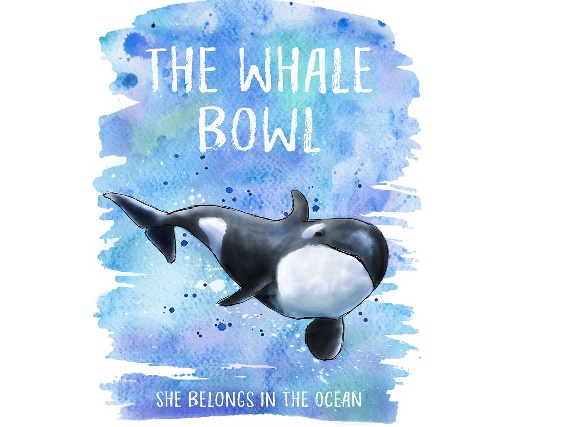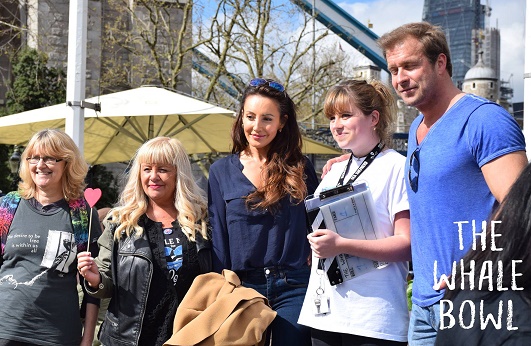 ‘The Whale Bowl’ is a short documentary made by film students from Greenwich University in London, UK to help raise awareness about the plight of Lolita, the orca currently held at Miami Seaquarium.
‘The Whale Bowl’ is a short documentary made by film students from Greenwich University in London, UK to help raise awareness about the plight of Lolita, the orca currently held at Miami Seaquarium.
Directed by Emily George and narrated by actress and author Heidi Mumford-Yeo, the score has been composed by Stafano Fasce, a student at the National Film and Television School, London. The documentary covers Lolita’s history, her current situation and the efforts being made to retire her to more natural surroundings in the home waters from which she was captured. Marine Connection had no hesitation in contributing to this documentary, and will continue our support by utilising it as part of the ongoing campaign.
Marine Connection director Margaux Dodds caught up with Emily recently to ask her about the inspiration and idea behind The Whale Bowl.
What first gave you the idea to use the issue of cetaceans in captivity for your documentary film?
Last September we were asked to pitch ideas for our final year university projects, and I immediately expressed my desire to create a film about Lolita. I’ve always felt very strongly about cetacean captivity and have followed Lolita’s plight for many years. I wanted to use this opportunity to create a film that did more than just entertain, I wanted to create something that made a real difference. The “Blackfish effect” was a big part of my research for this project, along with my studies into the power of film, viral advertising and editing to create emotional impact. Combining this research and my passion for cetaceans, I hope we’ve created a film that raises awareness about cetacean captivity, in a creative and educational way.
What is it about Lolita’s case that made you specifically want to feature her story?
I’ve spoken to many people about Lolita, and the vast majority had no idea about her story or her current living conditions, but were shocked when I told them. To be alone for 47 years, in a concrete tank that is as deep as you are long, is incomprehensible. I truly believe if more people knew the truth, they wouldn’t buy a ticket. While producing the documentary I had the honour of meeting so many inspirational campaigners who are fighting for Lolita, it’s their voices that are making Lolita stand out, with the same motto being repeated to me many times, “If we can’t get Lolita out, what hope do we have for the rest of them?”. This is why I wanted the documentary to focus on Lolita’s story.
How do you feel is best to address the issue of not only Lolita, but cetaceans in captivity with the youth of today?
I believe there is a generation shift occurring in attitudes towards cetacean captivity. I’m 21 years old and have grown up with access to a world of information on the internet, but this hasn’t always been the case. I have family members who visited Winston, an orca kept at Windsor Safari Park (now the site of Legoland) in the 1970’s. They didn’t know any better and have since told me, “if I knew what I know now, I would not have gone”. I believe it’s the growing power of social media that is driving this change in opinions, especially with younger people. We are no longer being fed one sided stories and can actively seek out and share information to form our own opinions. This information is spreading quickly and I can only see this online force growing.




